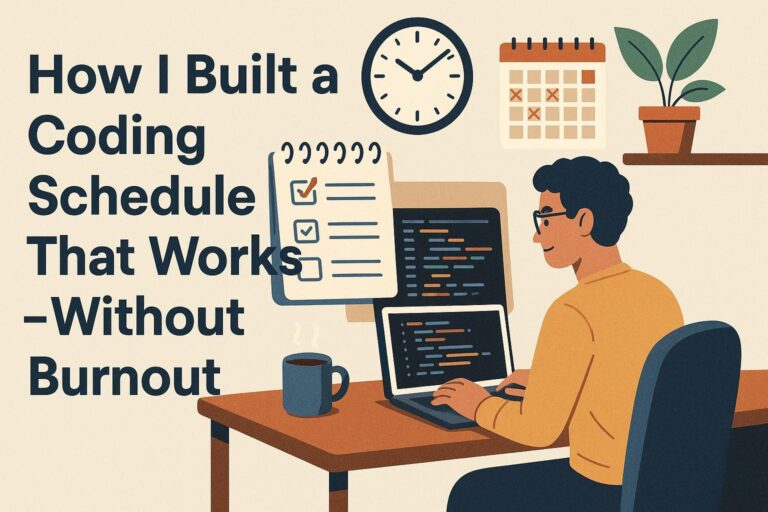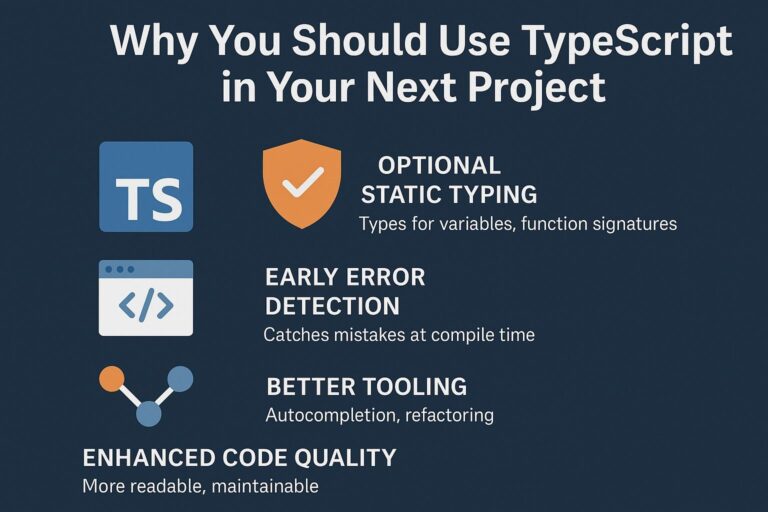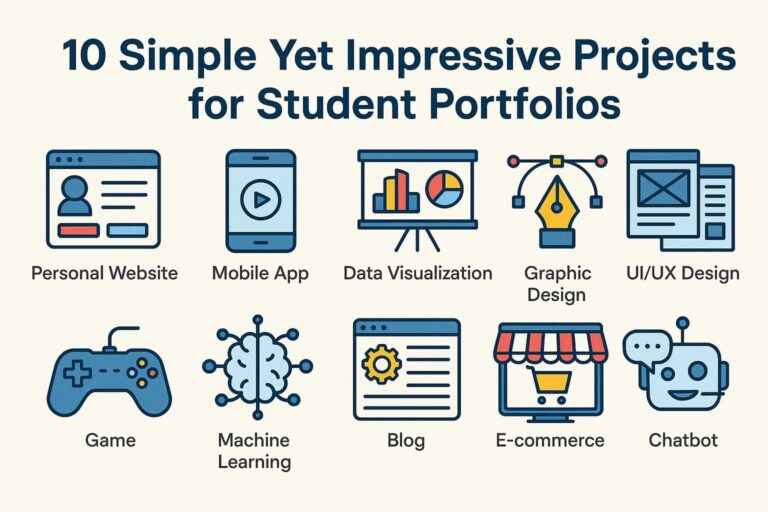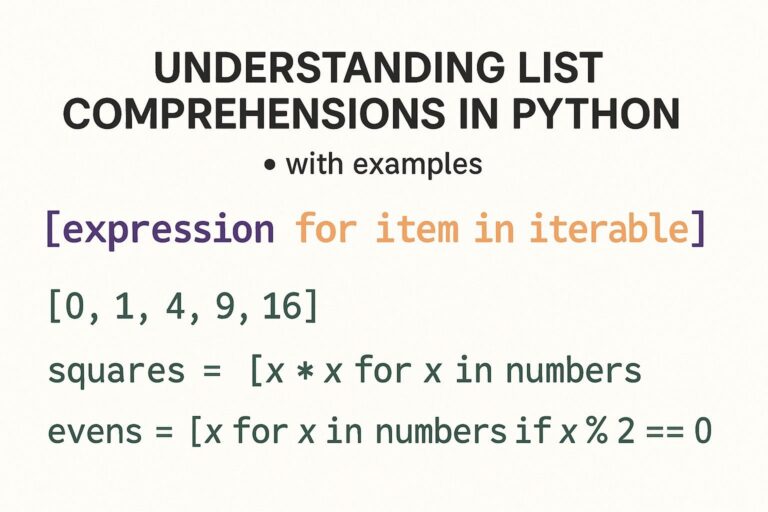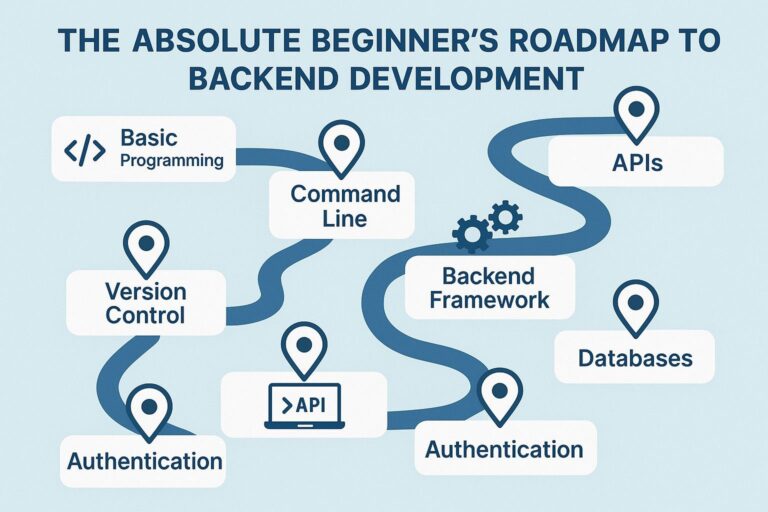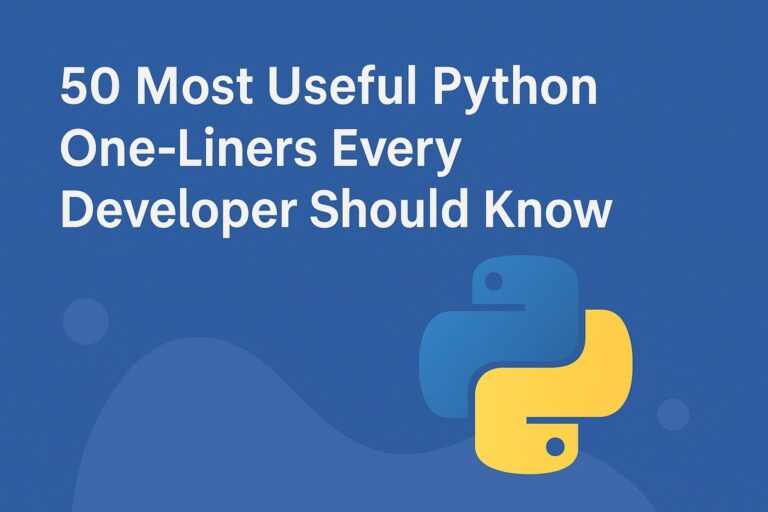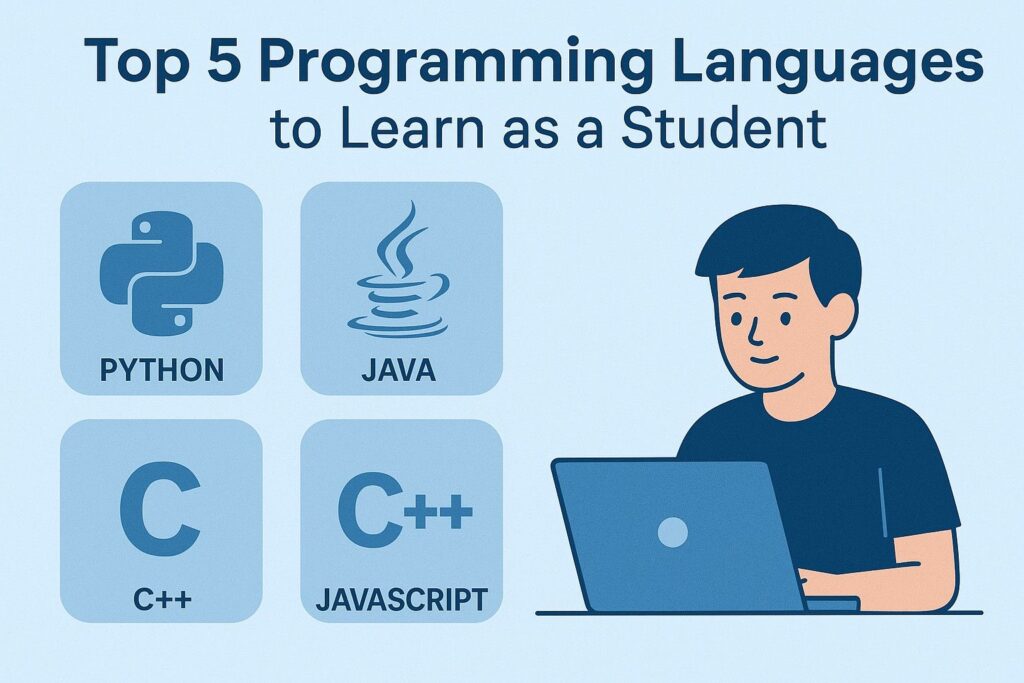
In the ever-evolving tech world, choosing the right programming language to learn as a student can significantly influence your career path. Whether you’re aiming for web development, data science, AI, app creation, or just building your foundation, learning the right language early gives you a competitive edge.
With emerging technologies and job market demands constantly shifting, here are the top 5 programming languages every student should consider learning.
1. Python – The All-Purpose Starter Language
Why Learn It:
Python continues to be one of the most beginner-friendly and versatile programming languages. Its clean syntax closely resembles English, making it ideal for those just starting out.
Use Cases:
- Data Science & Machine Learning
- Web Development (Django, Flask)
- Automation/Scripting
- Game Development
- AI & Robotics
- Cybersecurity
Why It’s Great for Students:
- Massive community support
- Tons of free learning resources
- Widely used in both academia and industry
- Excellent for both small scripts and large-scale applications
Bonus: Python is often the first language taught in top universities worldwide, including MIT and Stanford.
2. JavaScript – The Language of the Web
Why Learn It:
JavaScript is essential for building interactive and dynamic websites. It powers everything from user interfaces to real-time web applications and even mobile apps (via frameworks like React Native).
Use Cases:
- Front-End Development (React, Vue, Angular)
- Back-End Development (Node.js)
- Mobile Apps (React Native, Ionic)
- Browser Extensions
- Game Development (HTML5 Games)
Why It’s Great for Students:
- Immediate feedback when coding in the browser
- No need for complex setup—just a browser
- High demand in the job market
- Enables full-stack development with a single language
Learning JavaScript opens the door to becoming a full-stack developer early in your career.
3. Java – The Enterprise Giant
Why Learn It:
Java is known for its performance, scalability, and portability. It’s widely used in large enterprises, financial institutions, and Android app development.
Use Cases:
- Android Development
- Enterprise Software (Banking, ERP systems)
- Desktop Applications
- Backend Services (Spring Framework)
- Big Data (Apache Hadoop ecosystem)
Why It’s Great for Students:
- Strongly typed and object-oriented—great for learning programming fundamentals
- Used in competitive programming and coding interviews
- Offers long-term career opportunities due to demand in enterprise environments
Java has been around for over two decades—and it’s not going anywhere.
4. C / C++ – The Foundation of Modern Computing
Why Learn It:
If you want to understand how computers work under the hood, C and C++ are the best languages to start with. These languages are widely used in system programming, embedded systems, and high-performance applications.
Use Cases:
- Operating Systems
- Game Engines
- Compilers
- Embedded Systems
- Robotics
- System-Level Programming
Why It’s Great for Students:
- Teaches memory management, pointers, and low-level programming
- Often used in coding competitions and computer science courses
- Builds a solid base for understanding how higher-level languages work
Knowing C/C++ makes you a better programmer overall—especially when working with performance-critical applications.
5. SQL – The Language of Data
Why Learn It:
Data is everywhere, and SQL (Structured Query Language) is the most widely used tool to work with databases. It may not be a general-purpose language like Python or JavaScript, but it’s essential in almost every tech role.
Use Cases:
- Data Analysis
- Web and Mobile Applications
- Backend Development
- Business Intelligence
- Cloud Computing
Why It’s Great for Students:
- Easy to learn and implement
- In-demand across multiple industries (not just tech)
- Complements other programming skills
- Helps understand how data is stored and retrieved efficiently
Learning SQL will make you more employable in roles related to analytics, development, and software engineering.
Bonus Mentions (Worth Exploring After Mastering the Basics):
- Kotlin – For modern Android app development
- TypeScript – A superset of JavaScript used in large-scale web applications
- Go (Golang) – Popular for backend, cloud, and concurrency-heavy applications
- Rust – For secure and efficient system programming
- R – For data science and statistical computing
Final Thoughts
As a student in 2025, your focus should be on learning languages that offer both practicality and depth. Start with Python or JavaScript if you’re new to coding. Move on to Java or C++ if you’re interested in system-level concepts or enterprise development. And don’t overlook SQL—it’s an essential skill in today’s data-driven world.
Key Tips for Students:
- Don’t chase trends—pick a language based on your interest and goals
- Stick to one language until you’re comfortable before moving to the next
- Build projects to apply what you learn and reinforce concepts
- Join coding communities to learn collaboratively (GitHub, Reddit, Discord)
The language you choose to start with doesn’t define your path. Your problem-solving ability, consistency, and curiosity will.

I’m Shreyash Mhashilkar, an IT professional who loves building user-friendly, scalable digital solutions. Outside of coding, I enjoy researching new places, learning about different cultures, and exploring how technology shapes the way we live and travel. I share my experiences and discoveries to help others explore new places, cultures, and ideas with curiosity and enthusiasm.

